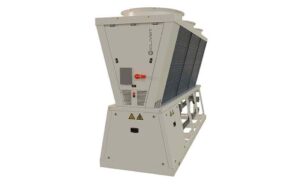Film rejects 70% of solar heat
9th November 2018USA: Engineers at the Massachusetts Institute of Technology (MIT) have developed a heat-rejecting film for windows that could reflect up to 70% of the sun’s incoming heat.
The film is said to be able to remain highly transparent below 32ºC. Above this temperature, the researchers say, the film acts as an “autonomous system” to reject heat. They estimate that if every exterior-facing window in a building were covered in this film, the building’s air conditioning and energy costs could drop by 10%.
The film is similar to transparent plastic wrap. Its heat-rejecting properties come from tiny microparticles embedded within it. These microparticles are said to be made from a type of phase-changing material that shrinks when exposed to temperatures of 30ºC or higher. In their more compact configurations, the microparticles give the normally transparent film a more translucent or frosted look.

Applied to windows in the summer, the film could passively cool a building while still letting in a good amount of light. Nicholas Fang, a professor of mechanical engineering at MIT, says the material provides an affordable and energy-efficient alternative to existing smart window technologies.
“Smart windows on the market currently are either not very efficient in rejecting heat from the sun, or, like some electrochromic windows, they may need more power to drive them, so you would be paying to basically turn windows opaque,” Fang says. “We thought there might be room for new optical materials and coatings, to provide better smart window options.”








